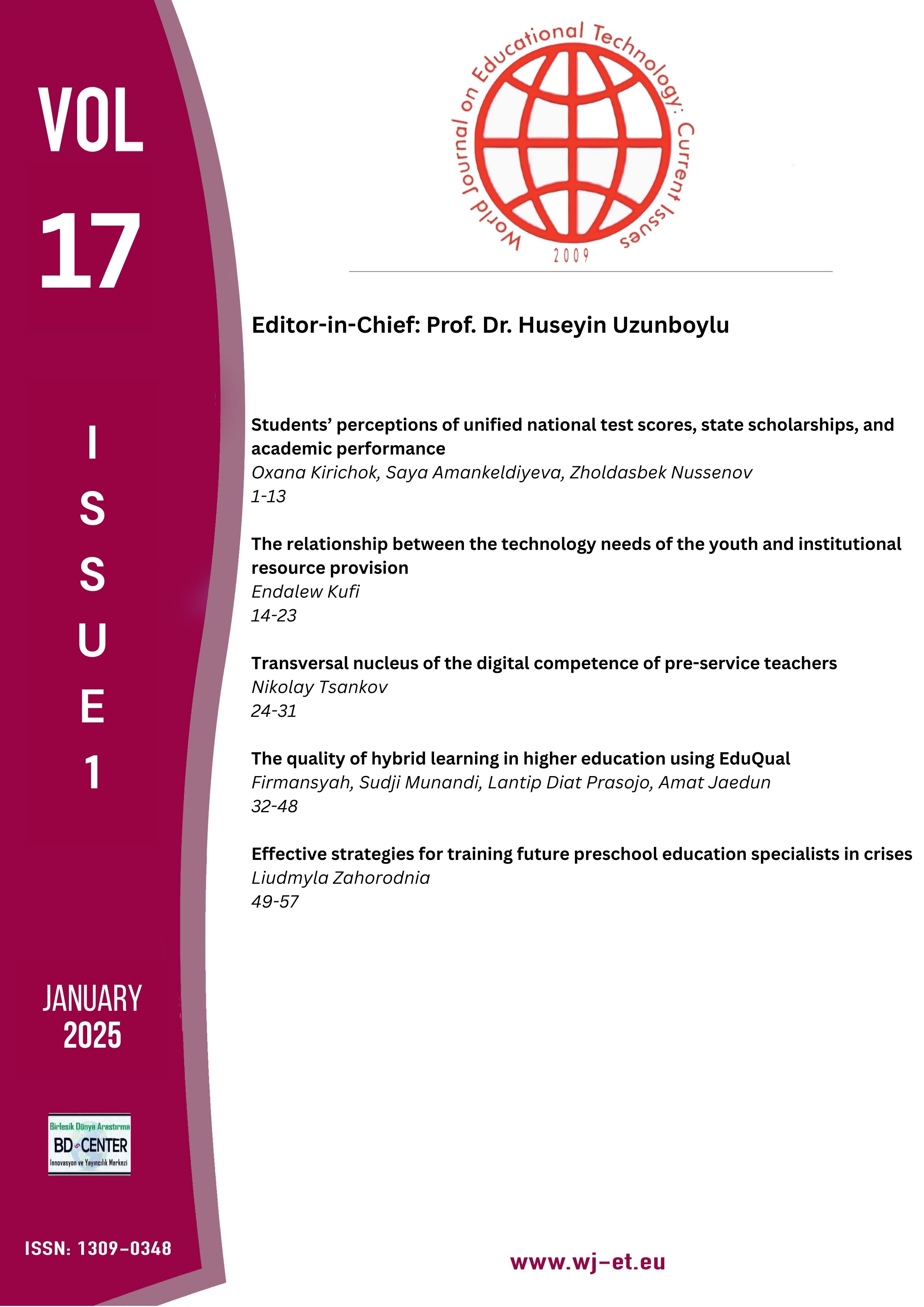The relationship between the technology needs of the youth and institutional resource provision
Main Article Content
Abstract
This survey explored the relationship between students' technological needs and the availability of resources in Ethiopia, emphasizing the role of educational stakeholders in promoting the productive and ethical use of technology in youth education. Focusing on secondary school and university levels, the study examined how the age and level of students influence their selection and use of technology, noting both benefits and challenges. Through a desk review of current research, the study revisited gaps between students' technological needs and institutional provisions in Ethiopia. A situational discourse analysis, using criterion sampling, was employed to assess students' needs against institutional provisions. Findings revealed that key challenges in meeting youth learning needs included issues with infrastructure, internet connectivity, and technology preparedness. Additional barriers included pedagogical misalignment of ICT resources, inconsistent access to electricity, weak managerial support, and limited collegiality among staff. These factors were identified as significant obstacles to the effective implementation of instructional technology in Ethiopia.
Keywords: Resource provision; students; technology; technology needs
Downloads
Article Details

This work is licensed under a Creative Commons Attribution 4.0 International License.
World Journal on Educational Technology: Current Issues is an Open Access Journal. The copyright holder is the author/s. Licensee Birlesik Dunya Yenilik Arastirma ve Yayincilik Merkezi, North Nicosia, Cyprus. All articles can be downloaded free of charge. Articles published in the Journal are Open-Access articles distributed under CC-BY license [Attribution 4.0 International (CC BY 4.0)].
Birlesik Dunya Yenilik Arastirma ve Yayincilik Merkezi (BD-Center)is a gold open-access publisher. At the point of publication, all articles from our portfolio of journals are immediately and permanently accessible online free of charge. BD-Center articles are published under the CC-BY license [Attribution 4.0 International (CC BY 4.0)], which permits unrestricted use, distribution, and reproduction in any medium, provided the original authors and the source are credited.
